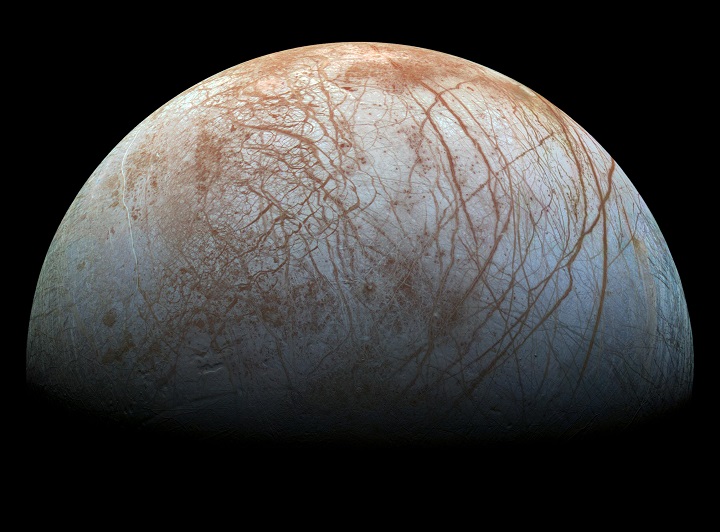Science
Related: About this forumNASA to Announce 'Surprising' Europa Discovery Monday
"Astronomers will present results from a unique Europa observing campaign that resulted in surprising evidence of activity that may be related to the presence of a subsurface ocean on Europa," NASA officials wrote in a media advisory Tuesday (Sept. 20).
The new information comes courtesy of NASA's Hubble Space Telescope, agency officials said. You can follow the news conference live here at Space.com, courtesy of NASA.
http://www.space.com/34131-jupiter-moon-europa-hubble-telescope-announcement.html
tonyt53
(5,737 posts)Cayenne
(480 posts)but I bet that's what it is. yawn.
Warren DeMontague
(80,708 posts)Also Elon Musk is finally supposed to unveil the plans for SpaceX's "Mars Colonial Transporter" ![]()
https://techcrunch.com/2016/09/17/spacexs-mars-colonial-transporter-can-go-well-beyond-mars/
Should be an exciting week for Space Exploration. ![]()
opiate69
(10,129 posts)Man, I'm constantly thinking "how lucky was I to be born when I was" with all the advancements in space exploration lately... but then, I think "fuck, my kids are probably the really lucky ones". I'd bet a lifetime's salary that extraterrestrial life will be found in their lifetimes... maybe in mine, but only if I actually have another 40+ years in the tank.
Warren DeMontague
(80,708 posts)I doubt that's what the Europa news is, obviously, (yet- doesn't mean it's not down there) but like Jerry Garcia NASA does enjoy a good tease... ![]()
opiate69
(10,129 posts)Well, they certainly got my interest piqued. I can't really imagine what they may have figured out that could be "surprising", but I'll definitley be keeping an eye on my phone next Monday lol.
sakabatou
(42,146 posts)Warren DeMontague
(80,708 posts)At least, not to get some real data on if there is life down there and what it's all about.

That reddish stuff on the surface? Job one should be to sample that.
https://www.caltech.edu/news/window-europas-ocean-lies-right-surface-38813
Warren DeMontague
(80,708 posts)Like, estimated at twice as much or more.
http://brilliantmaps.com/water-europa-vs-earth/

opiate69
(10,129 posts)Europa is so much smaller than the Earth...but then, compared to the size of the Earth, our oceans are actually remarkably shallow.
Judi Lynn
(160,501 posts)SCantiGOP
(13,867 posts)2001 Space Odyssey and the 2010 sequel.
Javaman
(62,507 posts)NeoGreen
(4,031 posts)opiate69
(10,129 posts)Scientists may use the infrared vision of NASA’s James Webb Space Telescope, which is scheduled to launch in 2018, to confirm venting or plume activity on Europa. NASA also is formulating a mission to Europa with a payload that could confirm the presence of plumes and study them from close range during multiple flybys.
“Hubble’s unique capabilities enabled it to capture these plumes, once again demonstrating Hubble’s ability to make observations it was never designed to make,” said Paul Hertz, director of the Astrophysics Division at NASA Headquarters in Washington. “This observation opens up a world of possibilities, and we look forward to future missions -- such as the James Webb Space Telescope -- to follow up on this exciting discovery.”